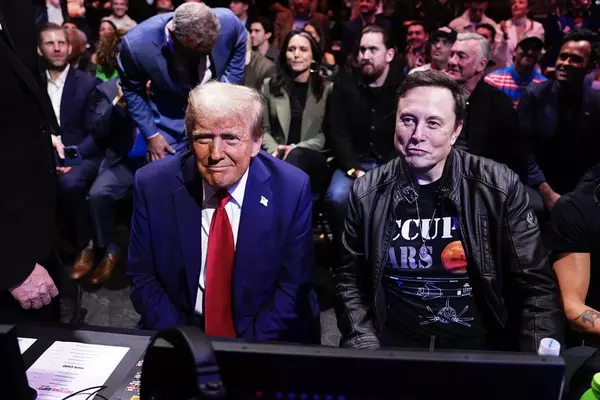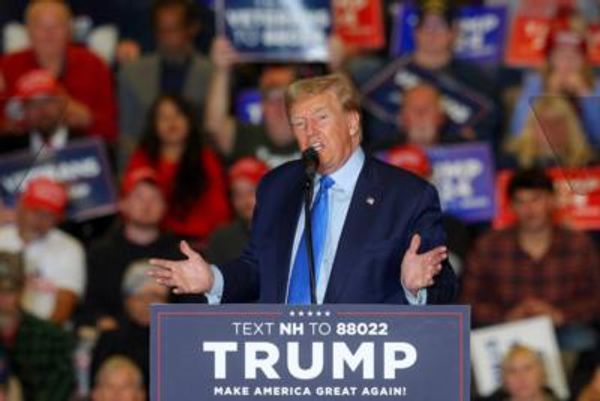
After nearly a decade battling terrorists in West Africa, France is now winding down its largest overseas military mission—and potentially unwinding decades of deep involvement in former colonies like Mali, Chad, and Burkina Faso.
French President Emmanuel Macron’s decision to wrap up “Operation Barkhane” reflects both disappointing results from the eight-year effort to stamp out jihadis from their newest staging ground and Macron’s own desire to reset relations with Africa. Since the early days of his presidency, Macron has vowed to put an end once and for all to “Françafrique,” Paris’s longstanding habit of meddling in the political, economic, and military affairs of its former colonies on the continent.
The first head of state to be born after the colonial era, Macron has supported phasing out the CFA franc, a West African currency that critics see as a vestige of colonialism, and returning art looted during the French occupation. On a more symbolic level, he has sought to heal the past’s wounds by acknowledging France’s crimes during the Algerian War and the country’s responsibilities in the Rwandan genocide.
Ending Barkhane, which Macron inherited from his predecessor, François Hollande, seems to be another step toward breaking the cycle of French interference and African dependency on the former colonial power.
“The end of Barkhane is the end of a France-Sahel tête-à-tête,” said Antoine Glaser, a specialist on Franco-African ties and co-author of a recent book on Macron’s stance on Africa.
In 2013, France sent troops to northern Mali to repel an offensive by radical Islamists that could eventually threaten the capital, Bamako. The intervention hit the armed groups hard, dislodging them from the cities, but did not annihilate them. Paris then kept its forces on the ground to contain militant attacks, shore up local militaries, and prevent the region from becoming a new hotbed for international terrorism. Today, some 5,100 French personnel with dozens of aircraft and hundreds of armored vehicles are deployed in a vast area that stretches across Mauritania, Mali, Burkina Faso, Niger, and Chad.
Now, they’ll be coming home. Macron is expected to announce the details and timetable of the pullout in the coming days—a summit with the Sahel leaders is planned for later this week. During a press conference in June, he suggested France would reduce its presence on the ground, relying more heavily on its special forces to keep up the pressure on the jihadis while continuing efforts to boost the local armies’ preparedness. According to French media reports, the plan entails bringing down the number of French troops in the Sahel by 50 percent over the next two years and closing some bases in Mali. France should not “replace a sovereign nation and build up its future in its place,” Macron said.
To some extent, such a French disengagement would acknowledge the shifting landscape in the region as the Sahel and West Africa long since stopped being France’s exclusive backyard.
China, while still less present than in other parts of the continent, has been making inroads. Its foreign direct investment stock has skyrocketed all over the region, for example growing by more than 400 percent between 2009 and 2019 in Niger and by almost 750 percent in Chad. Even in Mali, where the conflict between militants and security forces is particularly violent, China is involved in commercial projects and infrastructure development, said Lina Benabdallah, an expert on China-Africa relations at Wake Forest University. Beijing has also sent in hundreds of troops with the United Nations’ peacekeeping mission in Mali.
Russia is looking to expand its influence as well as it has in other parts of francophone Africa, such as the Central African Republic. In Mali, public opinion increasingly looks at Moscow as a potential security partner if France was to take a real step back, said Mady Ibrahim Kanté, a researcher at the University of Legal and Political Sciences in Bamako.
And Turkey has its eyes on the broader region too, particularly with growing investments in Senegal. Turkish companies have built huge infrastructure projects in the country, which Turkish President Recep Tayyip Erdogan has visited three times since 2016.
At the same time, France’s own economic interests in Africa are much less tied to its former colonies than they used to be. Strengthening economic partnerships beyond the old backyard is one of Macron’s mantras, but French investment has been targeting other parts of the continent since the 1990s, said Richard Banégas of Sciences Po, a research university. Nigeria, for example, has become a much more important market for French businesses than francophone West Africa, he said.
But the end of the operation is also a reflection of growing fatigue—both among the French public and among the host countries in the Sahel.
Thanks to French and international training and support, local forces have grown more efficient and are now taking on a bigger share of the anti-terror effort, said French army spokesperson Frédéric Barbry.
But although the Islamic State and al Qaeda-affiliated groups that Barkhane battled have suffered heavy casualties and the loss of several leaders, the small size of the French task force and the huge area of operations have made it hard to whack every mole. Large-scale operations—such as those recently carried out in the tristate border region among Mali, Burkina Faso, and Niger—cause a “ripple effect” with jihadists reorganizing elsewhere, said Héni Nsaibia, a senior researcher at the Armed Conflict Location and Event Data Project (ACLED), a nongovernmental organization that tracks political violence around the world.
Despite almost a decade of counterterrorism operations, Islamists control vast swathes of northern and central Mali, northern and eastern Burkina Faso, and western Niger. Their attacks have recently spread southward, spilling over into the Ivory Coast and Benin. Islamist violence often overlaps with ethnic conflicts among countless self-defense militias, some of which are supported by security forces in a bid to contain the jihadis.
“Over the past five years, we have seen an escalation of the conflict,” Nsaibia said. “Fatalities are growing each year. We are also seeing more and more deaths of civilians, which are being targeted by jihadist groups, self-defense or ethnic militias, but also government forces.” An estimated 2,440 civilians were killed in Burkina Faso, Mali, and Niger in 2020. That year, in Mali, security forces were responsible for more civilian deaths than Islamist groups, according to ACLED.
Barkhane itself has been accused of involvement in some ugly incidents. Last January, one airstrike hit a wedding in central Mali, killing at least 22 people, only three of whom were identified as terrorists, according to U.N. findings French authorities dispute—saying the strike didn’t target a wedding and didn’t cause any “collateral damage.”
In the Sahel, years of French military presence amid growing insecurity have stoked deep anti-French sentiments. Long gone are the days when Hollande received a hero’s welcome in Timbuktu and Bamako, Mali, as he did after France’s swift, successful offensive against jihadis in 2013. Public opinion in Mali now largely views Barkhane as unable to bring about security and as a tool of French neocolonialism, Kanté said.
That’s partly due to the different security agendas held by France and its local allies. Paris strongly discourages negotiations between some of its partners and jihadis. Locals view that as an infringement on sovereignty.
And although Barkhane rarely makes the headlines in France, except when a soldier dies (the official death toll is 56 deaths since 2013), the French public has grown weary of an operation that costs $708 million a year for few tangible results other than the occasional elimination of extremist leaders largely unknown at home. In January, for the first time, a French poll found a majority of respondents were against the intervention. And with presidential elections next year, Macron is keen to minimize the risk of any incidents entailing French casualties, said Jean-Hervé Jezequel, director of the International Crisis Group’s Sahel project.
But it’s more than just popular fatigue. When the second military coup in nine months took place in Mali in late May, Macron suspended military cooperation with the Malian armed forces, saying France could not continue to work with “a country where there is no democratic legitimacy.” The end of Barkhane was announced just weeks later, when Macron lashed out at local allies again: “We can’t keep securing areas that fall back into lawlessness because some states decide to shy away from their responsibilities.”
But the French president can’t shed the old “Françafrique” habits as easily as he’d like. When then-Chadian President Idriss Déby was killed fighting rebels in April, Macron was the only Western leader to attend his funeral, sitting in the front row next to the slain strongman’s son—who had just seized power in a de facto coup. The new Chadian ruler was then discretely received at the Elysée Palace earlier this week.
“What we are seeing is the incoherence of Macron’s typical ‘at the same time’ approach,” Banégas said. “The attempt to stabilize the region while also disengaging. Presenting France as a stalwart of democracy in Mali by punishing the authors of the latest coup, barely a month after his trip to N’Djamena.”
Still, despite Macron’s desire to disengage and public discontent with the ongoing operation, the drawdown doesn’t mean Paris is definitively abandoning the Sahel. Paris is trying to get other EU countries as well as the United States and the United Nations to play a bigger role. But “it’s not going to withdraw from a region where it has been present for over a century, one way or another,” Jezequel said. “The idea is: At this price, it’s not worth it, so we are going to maintain an influence but in a different way.”
In some respects, Macron’s latest move is just the latest twist in a decadeslong ambivalence about France’s role in Africa. Since the 1990s, Paris has wavered between the temptation to retreat and the urge to reaffirm its role as “Africa’s policeman.”
The shock of the Rwanda genocide in 1994 was followed by a few years of caution, with France ignoring requests for help from Congo-Brazzaville’s embattled president and refusing to intervene against a military coup in the Ivory Coast. Then, in the early 2000s, France got involved in conflicts in the Ivory Coast, Chad, and the Central African Republic. Shortly after, however, as yet another crisis broke out in the Ivory Coast, Paris adopted a non-interference stance and reduced its military activity to a minimum in the country. Finally, starting in 2011, the interventionist approach prevailed again. Within the span of a few years, France spearheaded Western efforts to topple Libyan strongman Muammar al-Qaddafi, heavily engaged its armed forces to bring down Laurent Gbagbo’s regime in the Ivory Coast, and sent troops to Mali and the Central African Republic.
For those on the receiving end of French involvement, even Macron’s latest move isn’t seen as the end of the story.
“The end of Barkhane is not perceived as a real withdrawal,” Kanté said. The overwhelming feeling in Mali is “France will never leave the Sahel and Africa.”







